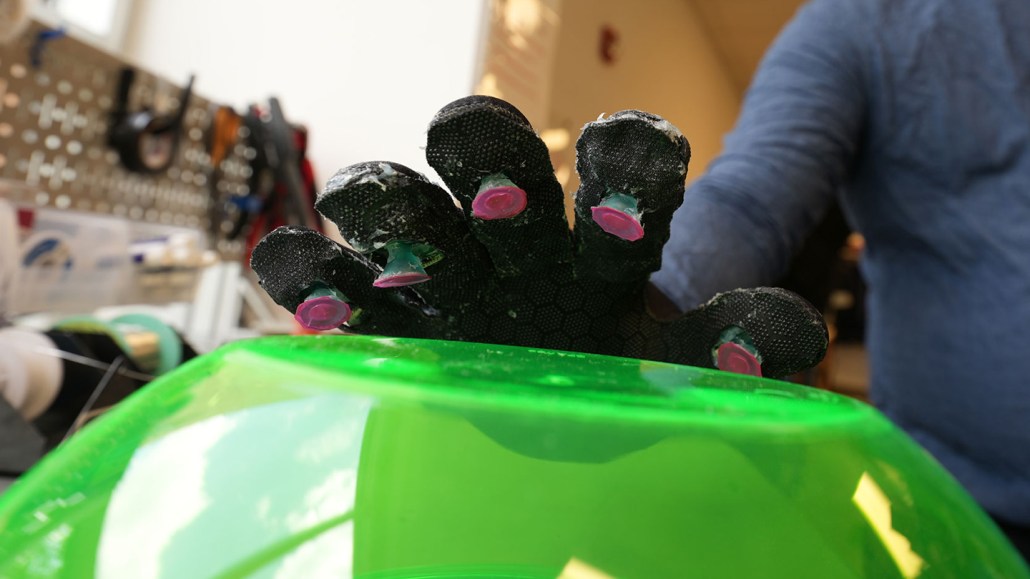
This wetsuit glove equipped with octopus-inspired suckers can stick to both curved and flat objects made of different materials.
Photo by Alex Parrish for Virginia Tech

This wetsuit glove equipped with octopus-inspired suckers can stick to both curved and flat objects made of different materials.
Photo by Alex Parrish for Virginia Tech